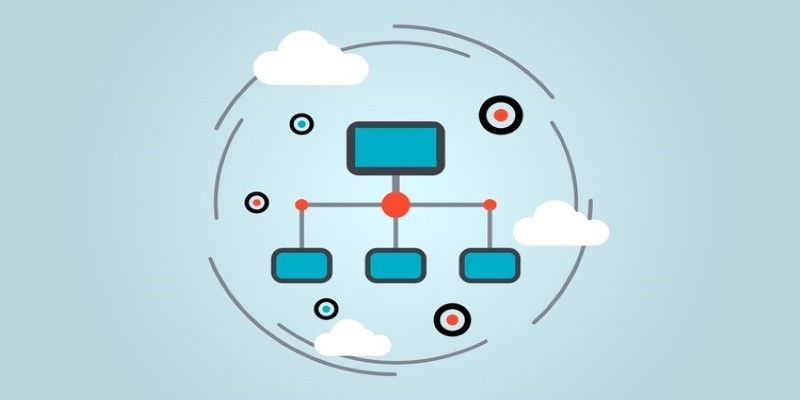
About Course
Computer networks are a growing trend. You can find them at your home, school, work, and most of the places you go daily.
Learn the basic concepts of computer networks, which hardware to use to set them up, and how to secure them.
- Become aware of networks surrounding you
When you start noticing networks around you, you will also understand a big part of the IT world. You will learn how the Internet works, how your Internet Service Provider (ISP) allows you to connect online, how do people share data without Internet access, and much more. Everything starts by becoming aware of computer networks.
- Learn how to set up a network
Whether you are taking this course to improve yourself, to get a better grade at school, or because of work, setting up a network is a skill that is very useful today. Yet many people do not know how to do it. You have an opportunity to learn it in few minutes.
- Learn how to protect yourself in a network, including the Internet
Unwanted sharing of passwords, pictures, documents, credit card numbers, and internet activity is not something anybody would want to share. But, with the expanded usage of computer networks, privacy is becoming an abstract term. This course helps you protect yourself when going online, and also protects your home/office network.
In this course you will learn network concepts, what are they and how do they work.
You will learn about network types, topologies, addresses, architectures, and communication modes.
In addition, you will learn about network hardware like modems, routers, and switches; and about transmission media like cables and electromagnetic waves.
The course also covers securing a network and securing yourself in a network.
It does not take a lot of time to take and view the course, but the knowledge you get will benefit your personal, and also your business life.
Who this course is for:
- The course is for everyone interested in learning about computer networks.
- Students that need help with network subjects.
- People who simply want to improve their knowledge about computer networks.
- Anyone who tried to learn about a computer network, but failed due to the lack of a perceivable image of it.
- People preparing for certification exams (such as CCNA).
Course Content
Computer Networks part 2
-
Dijkstra’s Algorithm: Shortest Path Problem
18:28 -
Bellman-Ford Algorithm: Shortest Path Problem
00:00 -
Bellman-Ford Algorithm: Shortest Path Problem
00:00 -
Routing Protocols: RIP, OSPF, BGP – Fundamental Concepts
00:00 -
Datalink layer: Cyclic Redundancy Check (CRC)
00:00 -
IEEE 802.3 Ethernet (CSMA/CD) – Fundamental Concepts
00:00 -
Ethernet and Address Resolution Protocol (ARP)
00:00 -
Virtual LAN (VLAN)
00:00 -
PPP and Multiprotocol Label Switching (MPLS)
00:00 -
DSL, Cable Modem, WiMax, Broadband Wireless
00:00 -
OSI & TCP/IP Reference Model
00:00 -
The Internet: Brief history and its future
00:00 -
Wireless Networking: Issues and Trends by Raj Jain
00:00 -
Wireless Physical Layer Concepts: Part 1
00:00 -
Wireless Physical Layer Concepts: Part 2
00:00 -
Wireless Physical Layer Concepts: Part 3
00:00 -
Wireless Physical Layer Concepts: Part 4
00:00 -
IEEE 802.11 Wireless LAN (WLAN) Part 1 – Fundamental Concepts
00:00 -
IEEE 802.11 Wireless LAN (WLAN) Part 2
00:00 -
IEEE 802.11 Wireless LAN (WLAN) Part 3
00:00 -
IEEE 802.11 Wirless LAN (WLAN) Part 4
00:00 -
Wireless Personal Area Networks: Bluetooth Part 1
00:00 -
Wireless Personal Area Networks: Bluetooth Part 2
00:00 -
Ultra-Wideband Networks
00:00 -
ZigBee
00:00 -
TCP Over Wireless Networks: Part 1
00:00 -
TCP Over Wireless Networks: Part 2
00:00 -
Beyond 3G Wireless Technologies: Part 1
00:00 -
Beyond 3G Wireless Technologies; Part 2: LTE
00:00 -
Mobile IPv4: Part 1
00:00 -
Mobile IPv4: Part 2
00:00 -
Mobile IPv6 Part 1
00:00 -
Mobile IPv6 Part 2
00:00 -
Ad Hoc Networks: Issues and Routing – Part 1
00:00 -
Ad Hoc Networks: Issues and Routing: Part 2 – OLSR
00:00 -
Ad Hoc Networks: Issues and Routing: Part 3: DSR, AODV
00:00 -
Network Security: Classical Encryption Techniques
00:00 -
Block Ciphers and Data Encryption Standard (DES) – Part 1
00:00 -
Block Ciphers and Data Encryption Standard (DES): Part 2
00:00 -
Basic Concepts in Number Theory & Finite Fields: Part 1
00:00 -
Basic Concepts in Number Theory & Finite Fields: Part 2
00:00 -
Advanced Encryption Standard (AES)
00:00 -
Block Cipher Operation (BCO): Part 1
00:00 -
Pseudorandom Number Generation and Stream Ciphersn
00:00 -
Block Cipher Operation (BCO): Part 2
00:00 -
Number Theory: Part 1
00:00 -
Number Theory: Part 2: Chinese Remainder Theorem
00:00 -
Public Key Cryptography & RSA: Part 1
00:00 -
Public Key Cryptography & RSA: Part 2
00:00 -
Cryptographic Hash Functions: Part 1
00:00 -
Cryptographic Hash Functions: Part 2
00:00 -
Message Authentication Codes: Part 1
00:00 -
Message Authentication Codes: Part 2
00:00 -
Scholartica: Affordable Learning Solutions
00:00 -
Digital Signatures: Part 1
00:00 -
Digital Signatures: Part 2
00:00 -
Key Management & Distribution: Part 1
00:00 -
Key Management & Distribution: Part 2
00:00 -
Key Management & Distribution: Part 3
00:00
Student Ratings & Reviews

